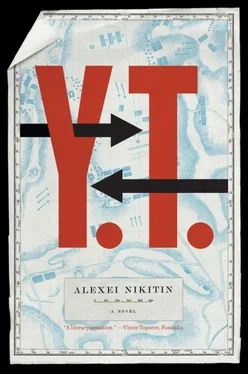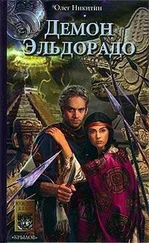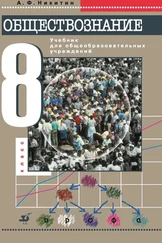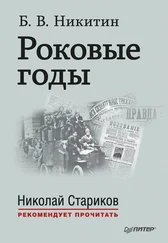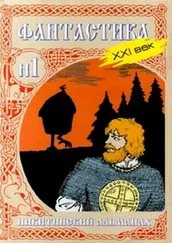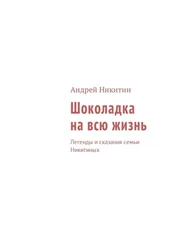As were the others. They would come into Sinevusov’s office during the interrogations. When he greeted his visitor the major would sometimes leap to his feet and wait for permission to resettle his backside on to the soft leather of his armchair and resume his work. But more often he just gave a friendly wave and a warm, fond smile. Not only to other majors but to those with fewer stars on their shoulders (although I never saw Sinevusov in uniform) and those without any stars at all. As far as I was concerned, he always behaved properly. Even affably. And he oozed oil endlessly.
He interrogated me at length about Istemi, the relationship that had developed between Emperor Karl and President Betancourt, the history of the wars between the Khanate and the Caliphates. He questioned me about many things, and all of it interested him. His questions often surprised me. I tried not to show it. He, on the other hand, reacted animatedly to my responses, cross-questioning me and going over the same point again and again to clarify it. And he always listened very attentively. He liked watching me draw the boundaries of our countries on a school relief map. How the greasy red line—the trail of a brand new Polish marker he’d got out of a desk drawer especially for me—crawled across the map and met up with the light-blue dotted line of the European border then broke away and set off across the living territory of sovereign states. Once Sinevusov’s superior, the general, had come upon us engaged in this activity. With a mild gesture he indicated that the major, who had leaped to his feet, should return to his seat and continue the interrogation.
By then I had extended the red boundary along the border between Bulgaria and Greece and was moving northwards along the border between Bulgaria and Yugoslavia. Following its twists and turns, I slowly made my way along the Danube. The general stopped me.
‘Label it right away or else it’s not clear. What’s this?’ He tapped his finger on the four-fingered fist of the Peloponnese.
‘The Caliphates.’ I wrote ‘UAC’ between Patra and Delphi.
‘And this?’ The general’s finger lingered on Bulgaria.
‘The Khanate.’
I noticed Sinevusov glancing warily at the general. His brow glistened with fine drops of oil.
‘Write it down, then!’ demanded the general.
He had learned this phrase well during his years of service. I carefully traced ‘ZK’ on the border between Bulgaria and Romania and then, without waiting for further questions, I wrote ‘SRC’ on the territory of Yugoslavia and said, ‘That’s the Slovenorussian Confederation.’
‘A bourgeois republic. Territory, 9.5 million square kilometers. Population, 210 million. Army of two million. Nuclear weapons capability,’ Sinevusov briefed him.
I hadn’t told him this, and he hadn’t asked me. Which meant that he had found it in the documents. Or else Kurochkin had said something. For he was somewhere getting interrogated, too. Perhaps just on the other side of the wall in the next room. At the time I don’t think I realized they had also arrested the other members of our group. But it wasn’t hard to figure out.
The general, standing and leaning heavily on Sinevusov’s desk, was examining the map carefully.
‘Carry on,’ he ordered.
From the Danube the Khanate’s border ran northeast, dividing Romania in half and divesting Ukraine of nine of its western provinces before coming up against the blue border line. The map was finished.
Without waiting for the general to prompt me I found the right place on the map, put down a greasy dot, wrote ‘Uman’ in big letters and underlined it.
‘The capital,’ I said.
‘Okay, but what about the south? Who does this belong to?’ He tapped on the Sea of Marmara.
‘Ah, yes,’ I remembered. ‘It’s ours.’ And I partitioned the northwest from Turkey. The red stripe linked the estuaries of the Gediz, Porsuk and Sakarya rivers.
‘Ours?’ The general smirked. ‘Do the Turks agree with that?’
‘There are no Turks here. This is the ceasefire line set by the 1975 armistice. It’s actually the border between the Khanate and the Caliphates. It’s true that Slovenorussia thinks the straits should belong to them, but their claim isn’t serious.’
‘Not serious?’ The general smirked again. ‘Very well. Carry on.’ He nodded to Sinevusov and went to the door, then stopped abruptly and asked, ‘What if Slovenorussia invades the Caliphates? Could that happen?’
‘Could the Soviet Union invade Iran?’ I said it to show him what rubbish he was talking. But that’s not how he understood me. Everything I said they interpreted in their own way.
‘What gave you that idea?’ The general looked at Sinevusov, who shook his head helplessly. ‘Does that mean your Slovenorussia is analogous to the Soviet Union? Is that what you mean?’
If someone wants to hear something that’s what he’ll hear, no matter what you say to him. All I could do was shrug my shoulders. ‘If I wanted to say that I would have said it. Slovenorussia isn’t the Soviet Union, and the Zaporozhian Khanate isn’t…’ I stopped and tried to think of a suitable state. ‘This country has no pre-existing value,’ I said, slipping in a bit of mathematical analysis.
At the next interrogation I drew another map for Sinevusov, this time of the Caliphates.
‘Tell me,’ he said, looking over the drawing, ‘how did you ever come up with such a strange game in the first place?’
Sinevusov asked me this question no less than five times a day. Every day. He would choose his moment, distract me, manoeuver like Suvorov preparing to storm the impregnable fortress of Ismail, and over and again make me repeat my answer—one short sentence that he refused to believe. I had memorized this harmless fabrication—forgive me, testimony—and recited it the way children recite Pushkin’s ‘Frost and Sunshine,’ the way students recite the definition of material according to Lenin, the way retirees recite the price of a hundred grams of butter. I had decided that once I said something I should stick to my story. And that’s what I did. Sinevusov listened with boredom, waiting for the moment when once again, as if graced by heavenly illumination, he could marvel, ‘Tell me, how did you ever come up with such a strange game in the first place?’
Place names such as Apple, Little Apple, Apple Tree, Upper and Lower Apple, Greater and Lesser Apple and so forth were so common and scattered so densely throughout the province of Zhytomyr as to suggest that the most common tree in the Ukrainian north-west wasn’t the oak, pine or birch but the apple tree. We drew Greater Apple for our food, bed and plunder. Three and a half weeks of kolkhoz life.
Like a caravan of slow black beetles, a dozen moonlighting LAZ coaches, stiflingly hot inside, lurched off from the university student quarters at around ten thirty in the morning. One police escort with flashing lights to the front and another to the rear, our long caravan made for the west. We flew over the Kiev provincial border without even noticing. By lunchtime we were passing the town of Korostishev.
‘Hey, Korostichevski,’ said Nedremailo, standing in the aisle of the bus. He mispronounced Korostishevski’s name so badly and so forcefully it felt like a sharp poke in the shoulder blade. ‘Are we passing through the land of your forefathers?’
Sashka Korostishevski drew aside the dusty curtain and looked out the window. Stretched along the road were shrubs, short little conifers and a herd of wiry cows huddled on the verge and following us with hungry eyes.
Nedremailo paused for a moment then headed off without waiting for an answer.
Vadik Kanyuka, sitting next to Sashka, gave him a shove and said, ‘He wants to swap homelands with you.’
Читать дальше
